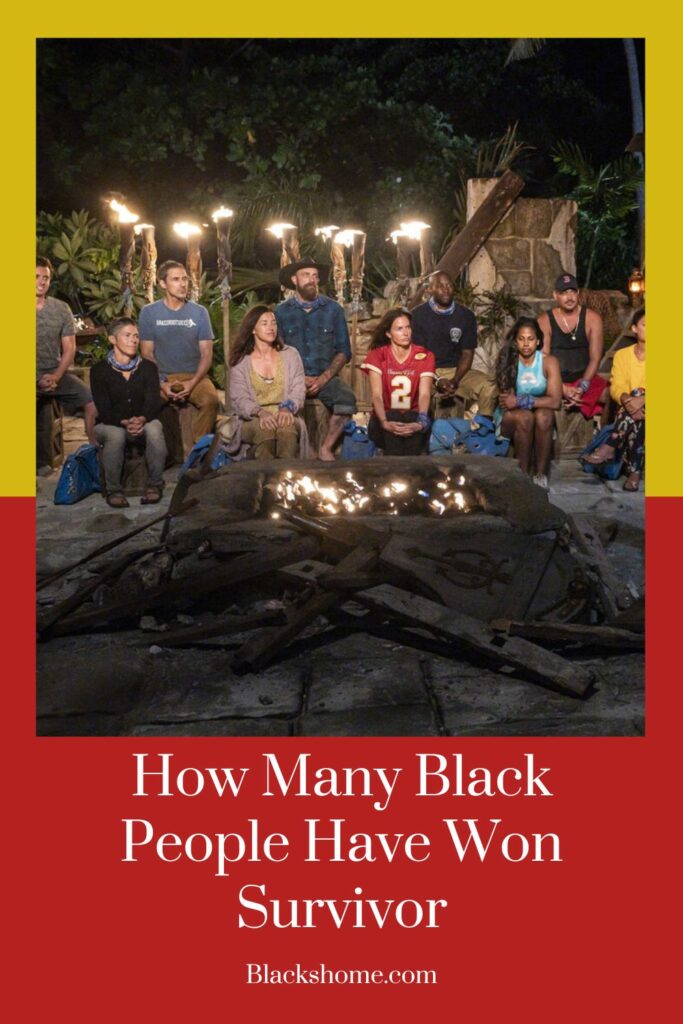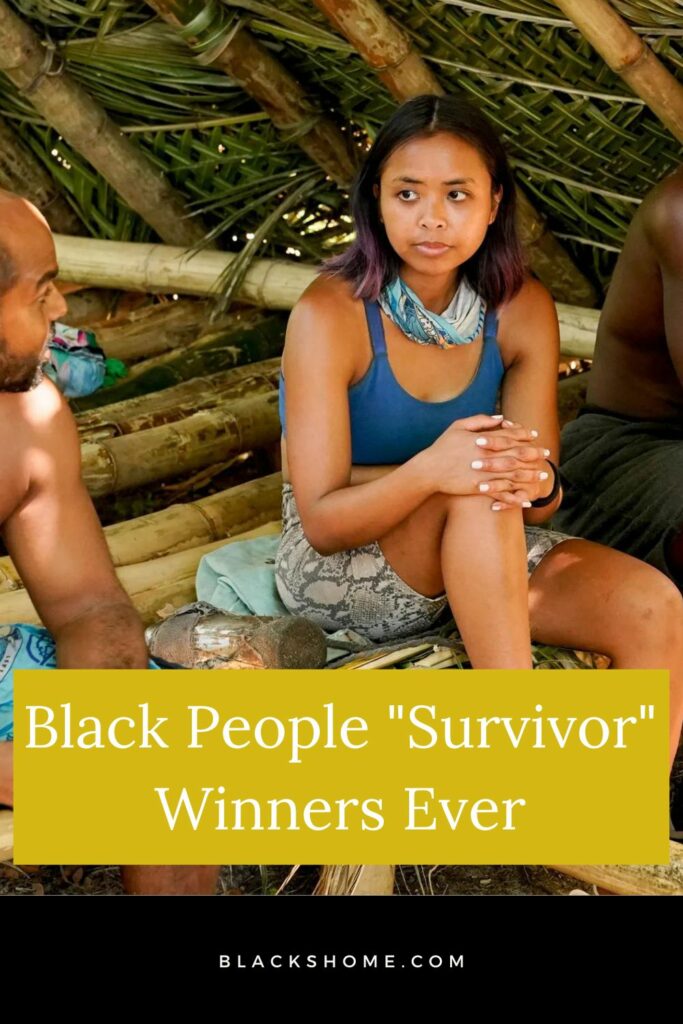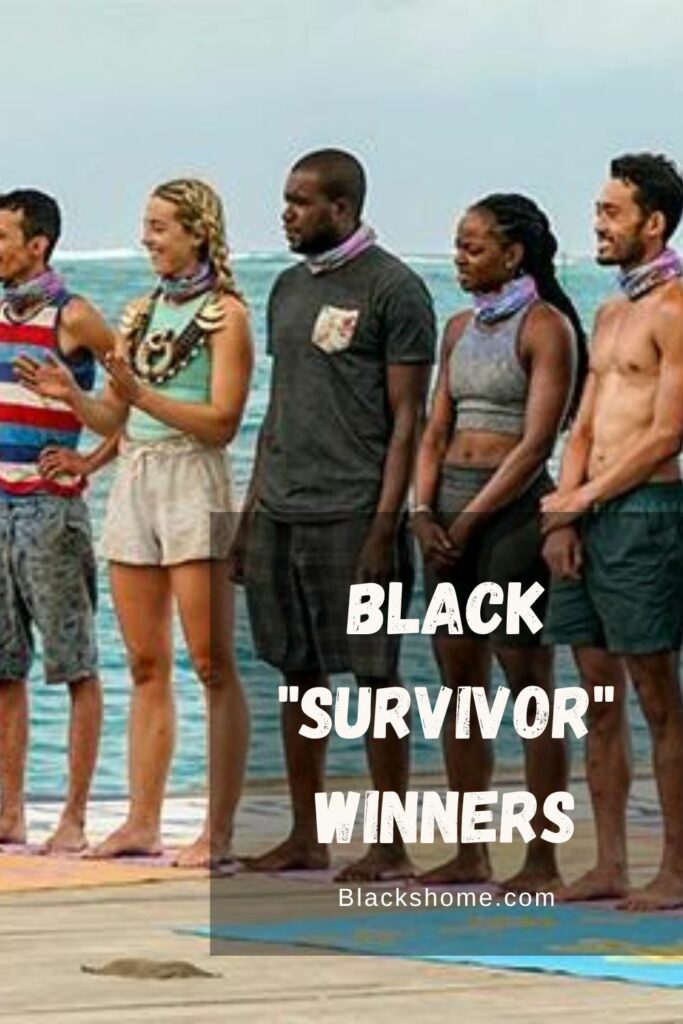Are you curious about the representation of Black people on Survivor? Have you ever wondered how many Black people have won the show’s coveted title of “Sole Survivor”?
Survivor is an immensely captivating and intriguing reality TV series that currently stands out as one of the most entertaining shows on air. The show has been broadcast in the United States since 2000.
Also Read: Black People Statistics You Probably Didn’t Know About!

Over the years, Survivor has been criticized for its lack of diversity and representation. In response, it has made efforts to include more diverse contestants from different ethnic backgrounds, genders, sexual orientations, and ages.
But, there is still more work that can be done to make the show better in terms of diversity. Some people have criticized it for sometimes portraying certain groups stereotypically or superficially.
With over 43 seasons under its belt, the show has seen a range of winners from various backgrounds, including African American contestants.
However, the question remains: how many Black people have actually won Survivor? Let’s delve into the answer.
Also Read: Why Do Black People Have Yellow Eyes?
Overview of Survivor Winners
The American version of Survivor first aired on CBS on May 31, 2000. It is hosted by Jeff Probst, who is also an executive producer alongside Mark Burnett and the original creator, Parsons.

1. Exploring the Ethnicity and Gender of Winners
Over the years, the show has seen a diverse group of contestants from various ethnic backgrounds compete for the title of “Sole Survivor” and the grand prize.
To date, a total of 43 contestants have won Survivor, with 26 being men and 17 being women who have been crowned the “Sole Survivor.”
While white contestants have won the majority of seasons, there have also been winners who are African American, Asian American, and Hispanic/Latino.
In Season 13, the show divided contestants into tribes based on their race, which was a misguided attempt to address criticism about the show’s lack of diversity. This decision was both sensationalized and sickening.
2. Promoting Diversity and Addressing Racism
In addition, there have been observations of instances of racism and ignorance toward African American contestants in other seasons of the survivor. These individuals have been subjected to name-calling and derogatory remarks, which is unacceptable.
As a matter of fact, black Survivor contestants are speaking up about their experience. They say that the series routinely forced them into racial stereotypes in its editing.
Additionally, the show has cut out the racial insults and other forms of discrimination that other contestants used against them.
As a fan of Survivor, I hope that the show will continue to strive for diversity. All contestants should be treated with respect and dignity, and instances of racism or other forms of discrimination should be addressed promptly.
The show needs to acknowledge and learn from its mistakes to ensure a safe and welcoming environment for all contestants.
Analysis of Winners by Skin Tone
Let’s dive into the analysis of the past winners’ skin tones and examine any patterns or trends that may exist. By looking at the diversity of past winners, we can gain insight into the show’s representation of different skin tones and how it may impact the viewing audience.

Survivor has had five Black winners in its history, with Vecepia Towery-Robinson being the first black woman to win the title of Sole Survivor in Season 4.
Earl Cole from Season 14, Jeremy Collins from Season 31, Wendell Holland from Season 36, and Maryanne Oketch for season 42 are the other Black winners. In all, approximately 12% of Survivor’s winners have been Black.
Stating that all of the winners of Survivor, apart from the four Black winners, have been light-skinned, raises concerns about the show’s lack of diversity in terms of skin tone.
This underrepresentation of winners with darker skin tones can be seen as a failure to provide fair opportunities and equal representation for contestants of all ethnicities and backgrounds. It highlights the need for the show to continue striving for greater diversity and inclusivity in its casting and production.
Also Read: Can Black People Get Hickeys? Everything You Need to Know!
Factors Affecting Survivor Success
Race/ethnicity and skin tone have been a topic of discussion in terms of their impact on success in Survivor. Lighter-skinned contestants may be seen as more “marketable” or attractive to viewers and advertisers. This can lead to advantages in terms of screen time, fan support, and ultimately, success in the game.

What It Takes to Win on Survivor
In addition to factors such as ethnicity and race that may impact a contestant’s chances of winning, the show Survivor features a range of challenges that assess the physical and mental abilities of contestants.
These challenges can test skills such as running, swimming, solving puzzles, and endurance, with rewards and immunity from elimination offered as prizes for success.
Other factors that may affect a contestant’s chances of success on Survivor include their social skills, strategic gameplay, adaptability, and ability to form alliances and build relationships with other contestants.
Additionally, a contestant’s ability to handle the stress and isolation of living on a deserted island for weeks can also impact their chances of success.
Former Survivor contestants J’Tia Hart and Brice Izyah, along with Wendell Holland, who won Survivor: Ghost Island, and other show veterans have launched a petition asking CBS to improve the portrayal and inclusion of Black and Indigenous people of color (BIPOC) on the show.
The petition calls for measures such as having at least 30% of each season’s contestants be BIPOC, equal screen time and promotion events for BIPOC, mental health resources specifically for BIPOC cast members, hiring more BIPOC in all areas of production, and a strict policy against racism.
Pin It!


Its your Turn…
In essence, Survivor needs to continue to prioritize diversity and inclusion in its casting process and behind-the-scenes production team.
This can include actively seeking out contestants from a wide range of backgrounds, providing support and resources for BIPOC cast members, and holding a zero-tolerance policy towards racism.
By embracing diversity and promoting equity in all aspects of the show, Survivor can help to set a positive example for viewers and the entertainment industry as a whole.
Read Related Articles:
- Are Black People Ugly?
- Are Black People Dumb?
- Why Do Black People Not Tip?
- Why do Black People Get Ashy?
- Why Don’t Black People Get Lice?
- Why Do Black People Have Big Butts?
- How Many Black People are in Russia?
- How Many Black People Live in Montana?
- Are Black People Stupid? All you Need to Know!
- Why do Black People Say AKS? The Real Story Behind it!
- Why are Black People Faster: Uncovering the Science of Black Speed!
- Why are Black People so Loud: Deciphering the Black “Energy”: Why We’re Louder!
